Muscle cramps can be incredibly disruptive, sending you on the quest for effective muscle relaxers to ease your pain. Whether it’s caused by strenuous exercise, medical conditions like multiple sclerosis or cerebral palsy, or even poor posture, muscle cramps can make daily life challenging. Thankfully, experts have identified some of the best muscle relaxants for relief, offering insights into both their benefits and side effects.
Best Over-the-Counter Muscle Relaxers for Cramps
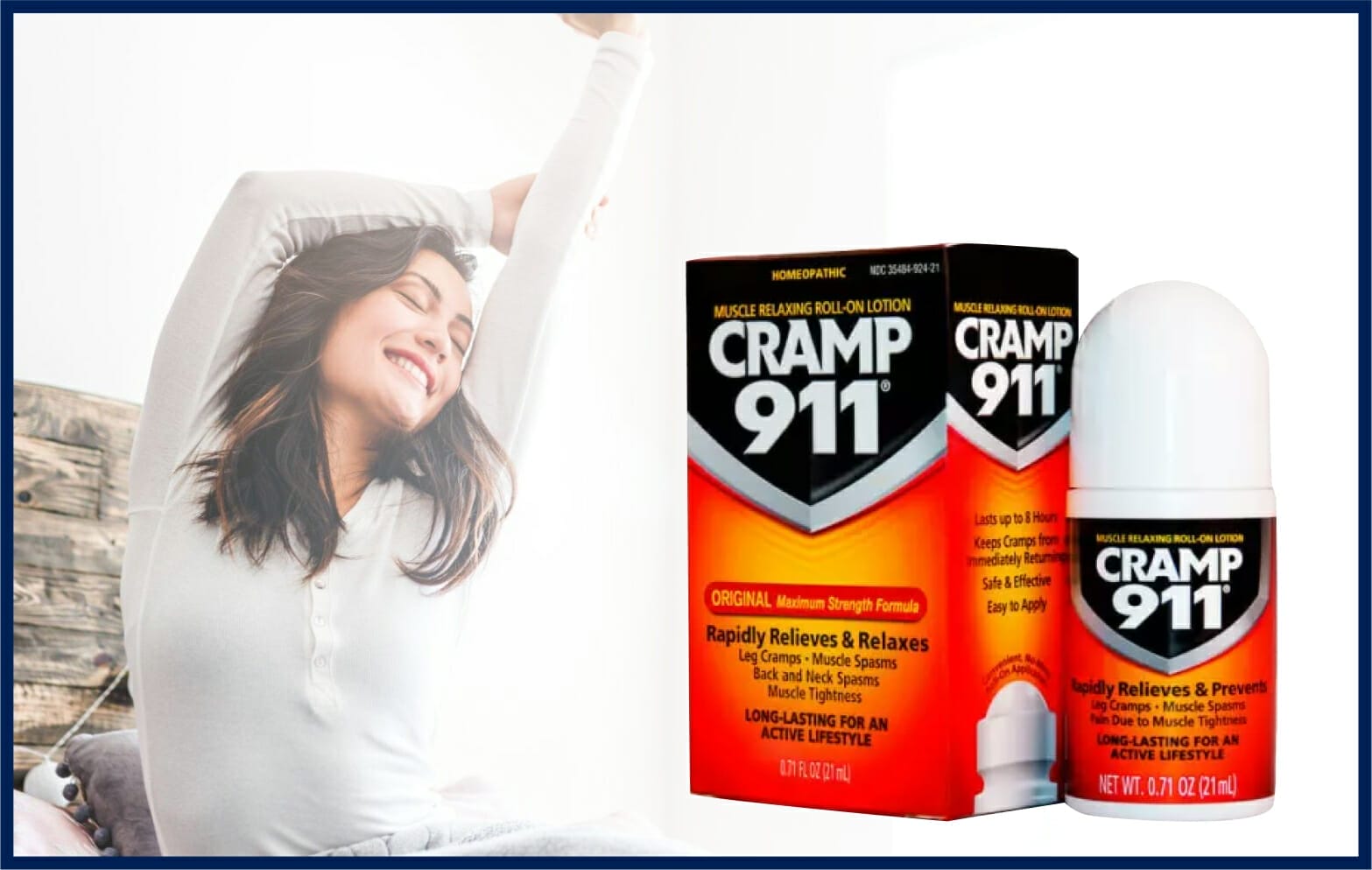
Cramp911
A potent natural remedy for muscle cramps is Delcorean’s Cramp911 cramp relief formula. Packed with natural ingredients known for their ability to relax muscles and alleviate pain, this product stands out for its holistic approach to cramp relief. It combines potent anti-inflammatory agents with muscle relaxants derived from plant sources.
Natural Ingredients and Their Effects:
- Turmeric Extract: With powerful anti-inflammatory properties, turmeric helps reduce inflammation-related muscle pain.
- Ginger Root: Known for its soothing properties, ginger root aids in alleviating muscle spasms.
- Valerian Root: This natural muscle relaxer reduces the intensity and frequency of muscle cramps.
Related Article: Best OTC and Natural Muscle Relaxers
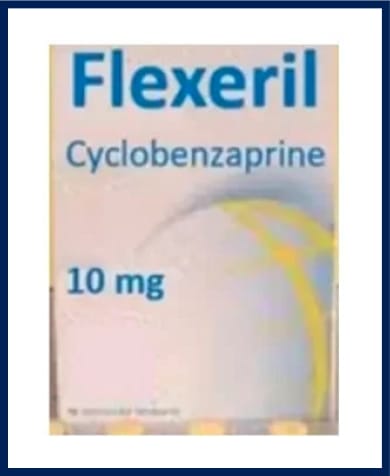
Cyclobenzaprine (Flexeril)
Cyclobenzaprine, commonly known by the brand name Flexeril, is a muscle relaxant that experts often recommend for those suffering from muscle cramps, particularly in the back and neck regions. It works by acting on the central nervous system, reducing muscle spasms and alleviating pain. This muscle relaxer is typically prescribed for short-term use, ranging from a few days to a couple of weeks.
Usage Guidelines: The typical dosage for Cyclobenzaprine varies, but adults generally take between 5 to 10 mg, up to three times a day. It’s essential to follow the medical advice provided by your healthcare professional and not exceed the prescribed dosage to minimize the risk of side effects.
Possible Side Effects: While Cyclobenzaprine can be highly effective, it comes with potential side effects like drowsiness, dizziness, dry mouth, and fatigue. Some patients may experience more severe side effects like confusion or hallucinations, though these are less common. Always consult with your healthcare provider before using Cyclobenzaprine, especially if you have a history of heart problems or other medical conditions.
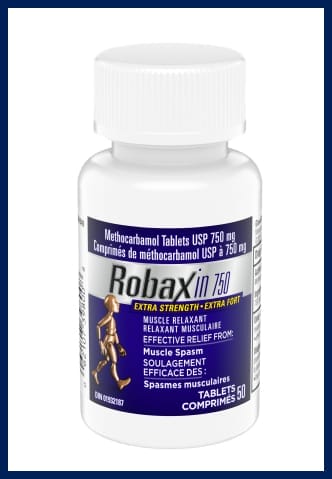
Methocarbamol (Robaxin)
Another effective muscle relaxant is Methocarbamol, often sold under the brand name Robaxin. It’s known for its ability to ease muscle tension by blocking nerve impulses sent to the brain. This helps to calm muscle spasms and reduce discomfort in the lower back, neck, or other affected areas.
How It Works: Methocarbamol is taken orally, usually in tablet form, and the standard adult dosage ranges from 750 mg to 1500 mg up to four times a day. Like other muscle relaxants, it’s best used under the guidance of a healthcare professional, and its use should generally be limited to short-term relief.
Safety Information: The primary side effects associated with Methocarbamol include dizziness, drowsiness, and headaches. Patients should exercise caution when driving or operating heavy machinery due to these side effects. More severe reactions like skin rash, itching, or swelling may indicate an allergy, and immediate medical advice should be sought in such cases.
Top Natural Remedies for Muscle Cramps
When it comes to natural remedies for muscle cramps, you may prefer options that don’t involve pharmaceuticals, turning to alternatives that provide relief with fewer side effects. Here are some of the top natural remedies recommended by experts.
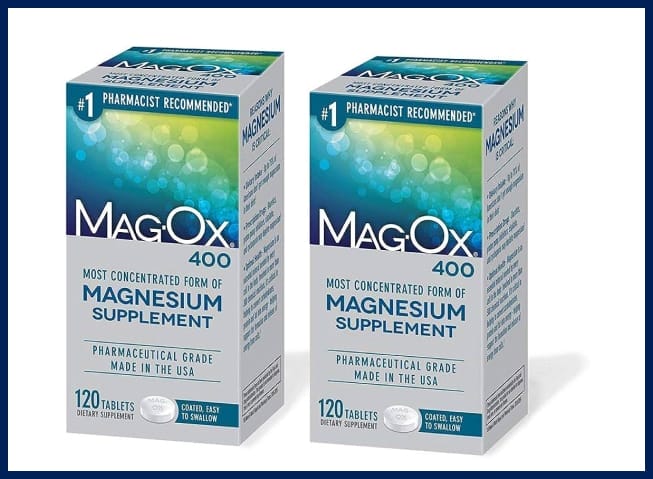
Magnesium Supplements
Magnesium plays a crucial role in muscle health, often touted for its ability to prevent and alleviate cramps. This mineral is essential for muscle contraction and relaxation, and deficiencies can contribute to muscle cramps. Experts recommend magnesium supplements to fill dietary gaps and provide targeted relief for cramping.
Suggested Products:
- Nature Made Magnesium: A trusted name in supplements, Nature Made offers a high-quality magnesium product with a recommended dosage of 250 mg per day.
- MagOx 400: Known for its highly absorbable form of magnesium, MagOx 400 provides 400 mg of magnesium oxide per tablet.
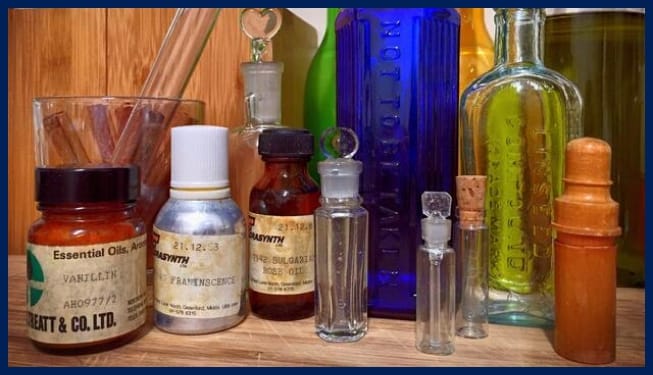
Essential Oils
Essential oils have long been praised for their therapeutic benefits. Among the best for muscle relaxation are lavender and peppermint oils, both of which are known for their soothing and anti-inflammatory properties. Some of the most effective essential oils for de-stressing and relaxing your muscles include:
- Lavender Oil: With calming effects on the nervous system, lavender oil helps ease muscle tension and reduce stress-induced cramps.
- Peppermint Oil: Known for its cooling sensation, peppermint oil helps soothe sore muscles and reduce spasms.
- Eucalyptus Oil: Revered for its anti-inflammatory and analgesic properties, eucalyptus oil is often used to reduce pain and inflammation in sore muscles. Its invigorating scent also helps clear the mind, providing holistic relief.
- Rosemary Oil: This essential oil contains high levels of antioxidants, making it effective in reducing muscle inflammation and spasms. Its stimulating aroma can also help invigorate the mind, aiding relaxation and stress relief.
Essential oils offer versatile ways to provide relief for muscle cramps and tension. Topical application involves diluting the oils with a carrier oil, like coconut or jojoba, and massaging them directly into the affected area for targeted relief. This method is ideal for spot treatment of sore muscles.
Aromatherapy uses diffusers to disperse the oils’ scents throughout a room, offering a calming environment that promotes relaxation and reduces overall muscle tension. For a full-body experience, a bath soak is an excellent method, where a few drops of essential oil are added to warm bath water, allowing the whole body to benefit from the oil’s soothing properties.
Finally, a compress combines the oils with warm water. A cloth soaked in this mixture is then applied directly to the affected area, offering a localized and prolonged treatment to alleviate pain and inflammation.
How to Choose the Right Muscle Relaxer for Your Needs
Factors to Consider
Choosing the right muscle relaxer means taking into account a few important factors, like the type of cramps you’re dealing with, how intense they are, and your medical history. If your cramps are mild and sporadic, natural remedies might be the way to go, but for intense or chronic spasms, you may need prescription meds. It’s also key to keep in mind your own health background, as certain conditions might affect which treatments are safe and effective for you.
Consulting with a Healthcare Provider
Before starting any muscle relaxer, it’s best to consult with a healthcare provider. They can help pinpoint the cause of your cramps, assess your overall health, and recommend the best treatment, ranging from some extra rest to physical therapy to medication. This is especially important if your symptoms are severe or ongoing. They’ll be able to suggest the right dosage and monitor any potential side effects to make sure you get the relief you need without unwanted surprises.
Final Recommendations and Best Practices
Finding the right approach to muscle cramps is all about using a mix of over-the-counter and natural remedies. For those mild cramps, natural options like magnesium supplements and essential oils can often do the trick. But if your cramps are really intense, Cramp911 could be just what you need to ease the pain and get you moving again.
In the end, it’s about understanding your cramps, your health, and leaning on the advice of your healthcare provider. With the right plan, you can manage those cramps and feel better, with less pain and more freedom to move. Just remember to always seek professional medical advice before starting any new health regimen.


